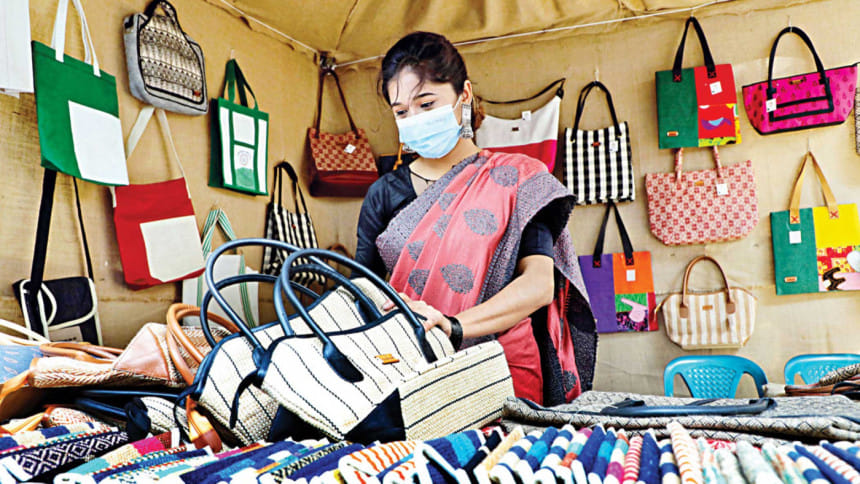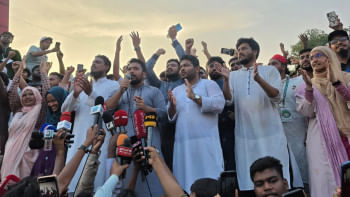Don’t make women jump through the hoops

Despite having a good track record of utilising bank loans and paying interests on time, women entrepreneurs in Bangladesh still have to circumvent various stumbling blocks while seeking loans from financing institutions. It is unfortunate that despite being important players in the overall economic growth of the country, neither the government nor financial institutions have taken effective initiatives to simplify the loan sanctioning process. For entrepreneurs and businesswomen to stand on their own feet, we need to remove the unnecessary hassle and encourage them to dream big—not be burdened by bureaucracy.
At a roundtable titled "Financial Inclusion for Women's Economic Empowerment," organised on the occasion of International Women's Day, women leaders and researchers asked the pertinent question: When thousands of crores of taka are plundered every year by male sharks, and bad loans are increasing at an alarming rate, why is it that women entrepreneurs have to meet stringent requirements to get loans of even small amounts?
Admittedly, the Bangladesh Bank in recent times has undertaken some positive initiatives to ensure financial inclusion of women. According to a circular issued by the central bank in 2019, 10 percent of the banks' total disbursements to the cottage, micro, small and medium entrepreneurs (CMSME) must be to women, and the percentage is to be raised to at least 15 percent by 2024. At the same time, the size of Bangladesh Bank's own source fund named "Small Enterprise Refinance Scheme" has been increased from Tk 850 crore to Tk 1,500 crore to include more women. Furthermore, to face financial challenges during the Covid-19 pandemic, the government declared stimulus packages of Tk 20,000 crore for the CMSME sector.
However, the latest Bangladesh Bank statistics show that women entrepreneurs received only 3.78 percent of the banks' total disbursements to CMSMEs. It is apparent that policies alone will not be enough to bridge the gap, when women are being barred from accessing the loans, because they lack the long list of official documents needed to be eligible for the loans.
Sociocultural constraints, patriarchal mindsets, lack of control over decision-making processes, and low digital-technology literacy are some of the reasons holding women back from financial inclusion. Giving due recognition to the fact that their collective contribution would largely boost the country's economy, the government should formulate time-befitting women-friendly financial policies. We believe that collateral-free bank loans, if introduced, would attract more women to start their own enterprises and become successful employers in the long run.

 For all latest news, follow The Daily Star's Google News channel.
For all latest news, follow The Daily Star's Google News channel. 



Comments